Additional fertilizer for eggplants and bell peppers (Growing eggplant and bell pepper in garden)
Growing white eggplant and green pepper in mulching cultivation. Last time, the white eggplants and green peppers were transitioned from temporary stake to thicker stake. Both the eggplants and peppers have been growing for about a month since they were planted. As the effects of the initial fertilization are starting to diminish, it’s time for additional fertilizing.
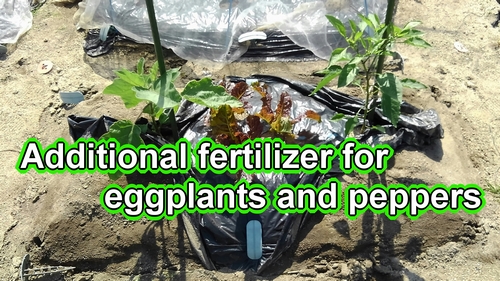
Not only for eggplants and peppers but also for most vegetables grown from seedlings, the time for additional fertilization typically occurs about a month after planting the seedlings. This time, I will explain the method of fertilization. (I will provide eggplant and pepper plant care.)
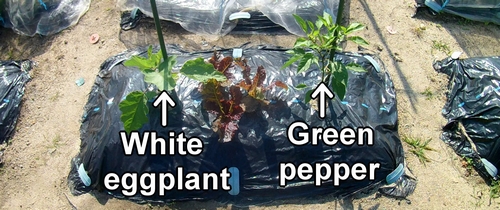
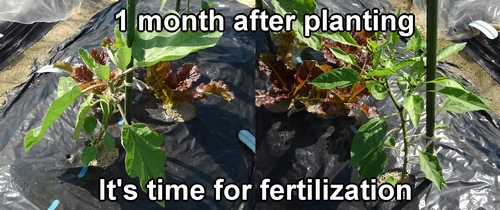
The seedlings of green peppers and white eggplants were planted in late April.
Fertilization method for white eggplants and bell peppers
The location for fertilization should be about 20cm (7.8 inch) away from the base of the white eggplant and green pepper plants. Applying fertilizers too close to the base can damage the roots of the eggplants and peppers. (Maintaining a certain distance when applying fertilizers helps prevent fertilizer burn.)
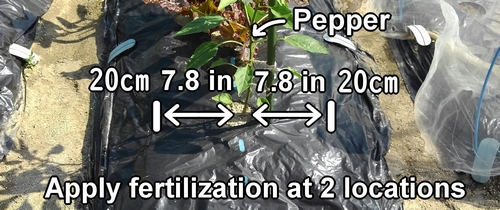
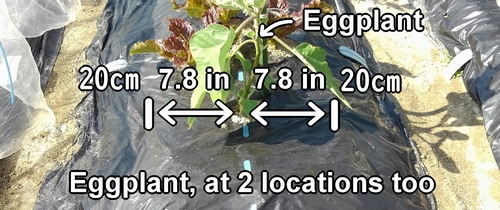
There are 2 fertilization points for each white eggplant and bell pepper plant, totaling 4 fertilization points.
Best fertilizer for eggplant and pepper is a organic chicken manure (fully matured fermentation). Chicken manure contains a balanced combination of nutrients like nitrogen and phosphorus, making it suitable not only as a base fertilizer but also highly recommended for additional fertilizer.
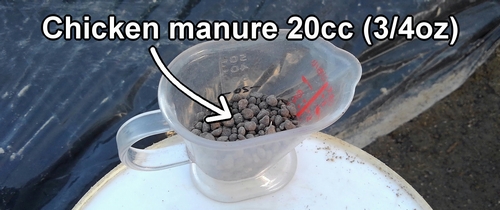
Both the white eggplants and green peppers are cultivated organically, so organic chicken manure is also used as fertilizer. Organic fertilizers like chicken manure are slow-release fertilizers that are broken down by soil microorganisms and become effective.
The amount of fertilizing is 20cc (3/4 oz) of chicken manure per location. Lift the mulch the fertilizing area, dig a hole about 10cm (3.9 inch) deep using a trowel, and apply the chicken manure in the hole.
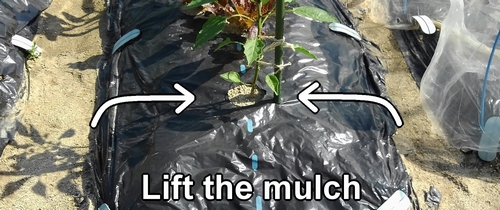
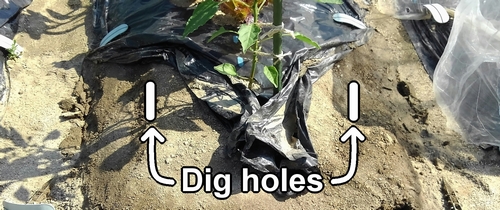
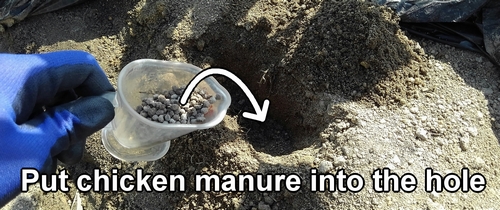
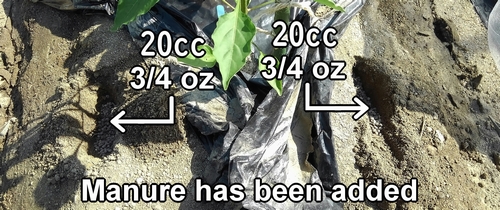
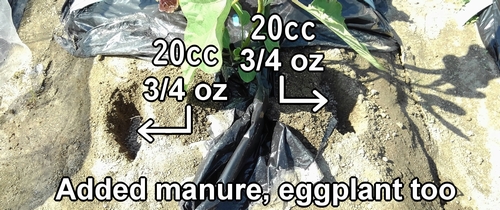
After fertilizing the white eggplants and bell peppers, water the chicken manure. Moistening the chicken manure is because it aids in the easier decomposition by microorganisms.
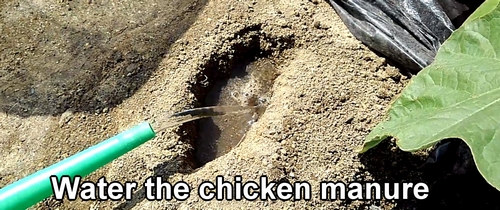
Cover the fertilized chicken manure with soil. If the fertilizer isn’t properly covered, pests can be attracted by the odor and come near. After applying fertilizing to the white eggplants and green peppers, if pests like aphids come around, it’s pointless, so make sure to cover the soil after fertilization.
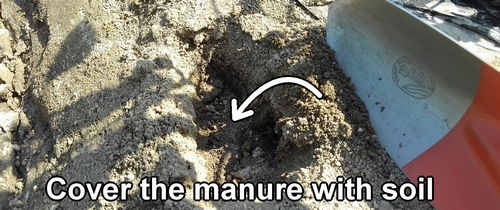
Finally, put back the mulch over the fertilized area. With this, the additional fertilizing for the white eggplants and green peppers is complete.
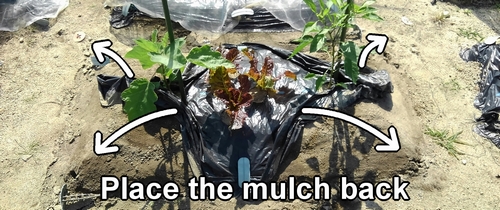
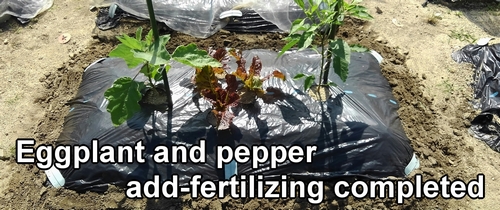
Following is the video for how-to. English subtitles are available.
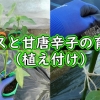




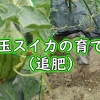





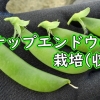
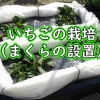
ディスカッション
コメント一覧
まだ、コメントがありません